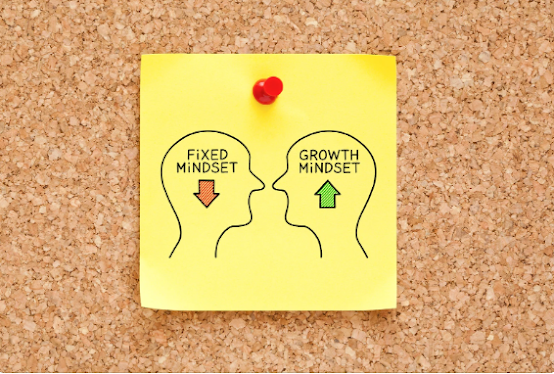Fixed Mindset Definition
A fixed mindset is a belief system where individuals perceive their abilities and intelligence as static traits that cannot be changed. People with a fixed mindset often think that their talents and skills are innate and predetermined. This mindset can lead to a fear of failure, as individuals may believe that any setback or challenge is a reflection of their inherent limitations. Consequently, they may avoid taking risks or trying new things to prevent exposing their perceived weaknesses.
In a fixed mindset, effort is often seen as fruitless. People may believe that if they have to work hard at something, it means they are not naturally good at it. This can result in a lack of motivation to improve or learn new skills. Additionally, individuals with a fixed mindset may feel threatened by the success of others, viewing it as a reminder of their own shortcomings. This can create a competitive and negative environment, where collaboration and growth are stifled.
Growth Mindset Traits
On the other hand, a growth mindset is characterized by the belief that abilities and intelligence can be developed through dedication, effort, and learning. People with a growth mindset see challenges as opportunities to grow and view failures as valuable learning experiences. They understand that effort is a crucial part of the learning process and that persistence can lead to improvement and success.
Individuals with a growth mindset are more likely to embrace challenges and persist in the face of setbacks. They are open to feedback and willing to learn from criticism, seeing it as a tool for growth rather than a judgment of their abilities. This mindset fosters a love of learning and a resilience that is essential for achieving long-term goals. Moreover, people with a growth mindset are often inspired by the success of others, using it as motivation to continue their own development.
Collaboration and innovation thrive in environments where a growth mindset is prevalent. When individuals believe that they can improve and learn from each other, they are more likely to share ideas and support one another. This creates a positive and dynamic atmosphere that encourages continuous improvement and collective success.
Fixed Mindset Beliefs
Fixed mindset beliefs are often rooted in the idea that talent and intelligence are fixed traits that cannot be altered. This can lead to a variety of limiting behaviors and attitudes. For example, individuals with a fixed mindset may avoid challenges to protect their self-esteem. They might stick to tasks they know they can do well, rather than pushing themselves to try new things that could lead to growth.
People with fixed mindset beliefs may also struggle to accept feedback or criticism. They might see it as a personal attack rather than an opportunity to improve. This can hinder their ability to learn and develop new skills. Additionally, they may be more likely to give up when faced with obstacles, believing that their efforts are futile if they do not see immediate success.
Another common belief associated with a fixed mindset is the notion that success is a result of natural talent rather than hard work. This can lead to a lack of effort and perseverance, as individuals may feel that their abilities are predetermined and cannot be changed. They might also feel envious or threatened by others' achievements, seeing them as a reminder of their own limitations.
The Impact of Mindset on Success and Learning
The type of mindset an individual holds can have a profound impact on their success and learning. A growth mindset, with its focus on effort, learning, and resilience, can lead to greater achievements and personal development. People with a growth mindset are more likely to take on challenges, persist through difficulties, and continuously seek to improve. This can result in higher levels of success in various areas of life, including academics, career, and personal relationships.
In contrast, a fixed mindset can limit an individual's potential. By avoiding challenges and fearing failure, people with a fixed mindset may miss out on opportunities for growth and development. Their reluctance to put in effort and learn from feedback can hinder their progress and prevent them from reaching their full potential. This can lead to a cycle of underachievement and frustration, where individuals feel stuck and unable to move forward.
Understanding the differences between fixed and growth mindsets is essential for fostering a positive and productive approach to learning and success. By recognizing and challenging fixed mindset beliefs, individuals can develop a growth mindset and unlock their potential. This shift in perspective can lead to a more fulfilling and successful life, where challenges are embraced, and continuous improvement is valued.

.png)
